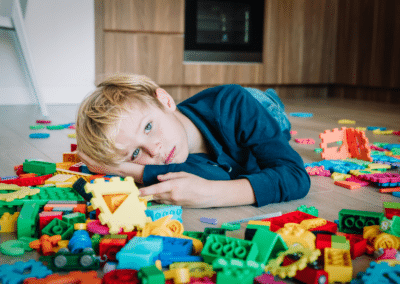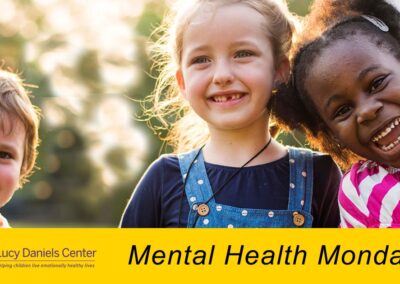Supporting the Social Development of Children while Social Distancing
by: Jennifer Reid
Early School Director/In-School Therapeutic Services Coordinator | Lucy Daniels Center
A fundamental part of childhood is social development. During the current health crisis, many parents are left wondering how their children, especially those with social difficulties, will continue to grow socially while being cut off from their peers.
First, while we don’t know how long, remember that this is temporary. It may seem now that critical time will be lost or that there will be permanent setbacks, but eventually life will resume its normalcy and all of us will pick up where we left off. Remind yourself that all families are facing similar challenges.
While nothing can take the place of real-life social interactions, reading fiction supports the development of empathy and self-reflection in children and adults alike. Even the simplest picture book or chapter book opens opportunities for thought about characters’ feelings, motivations, and conflicts, especially if you pause while reading and make comments or ask open-ended questions.
In this unprecedented situation we are in, many people are turning to their screens to find connections. Make a schedule to connect with relatives and classmates. In our work with children, we are finding that they love and crave these connections. For those who become camera shy, it may be helpful to convey your understanding that it feels different or weird to see people on a screen instead of in person. Or, if video connections aren’t possible, help your child become an email-pal with a relative, neighbor, or classmate. Give them time to warm up to these different ways of connecting with others.
Most importantly, talk with your children about their feelings. Continue to remind them of people who are important to them and allow them to express their feelings about missing or wondering about them. Talk about how video calls feel different than being together and give them the space to put words to how they are experiencing this temporary lifestyle change. It is through change and hardship that we grow the most, and your child’s teachers and caregivers will be ready to pick up the pieces when normal life resumes.



